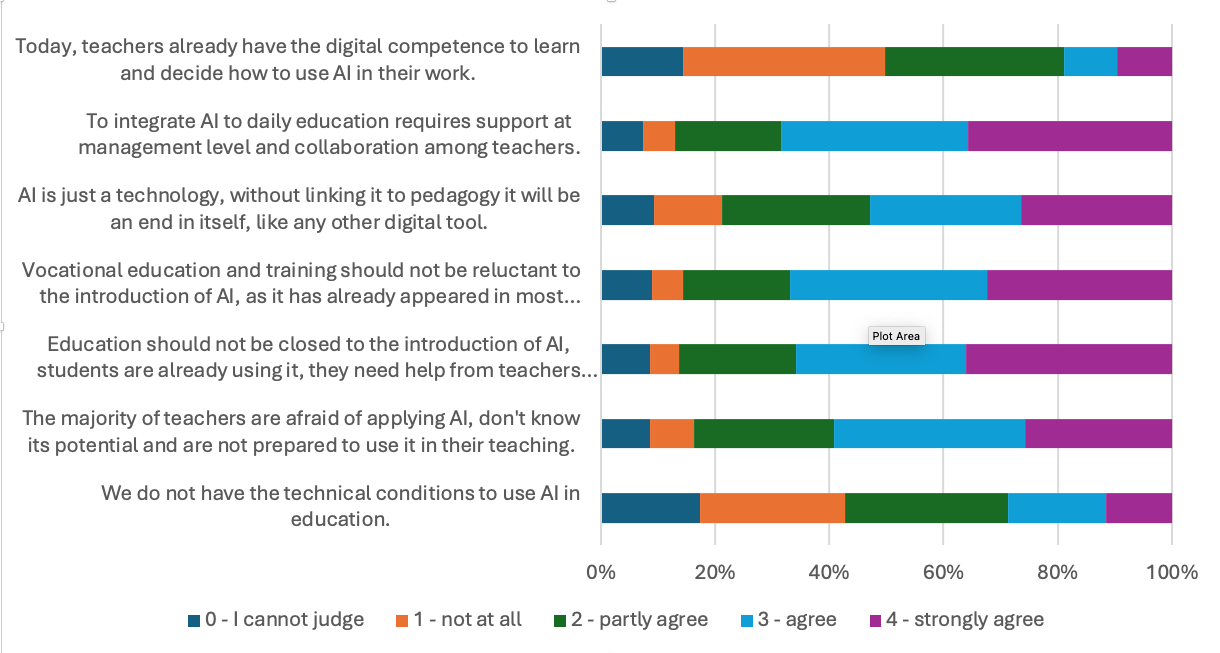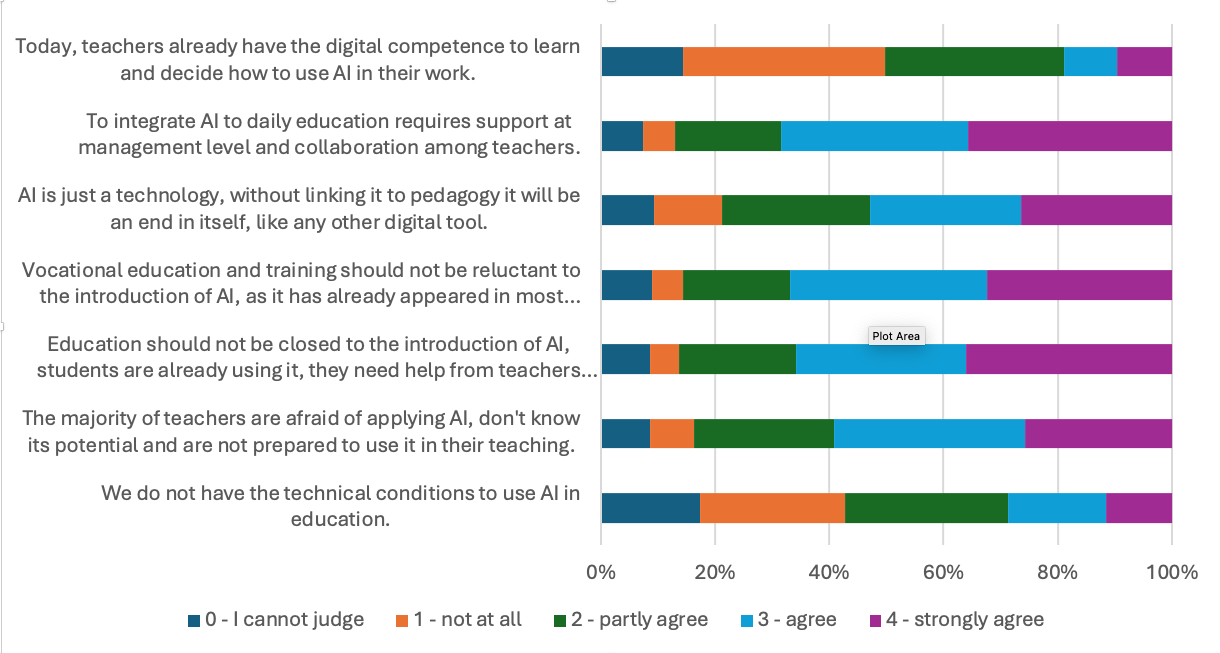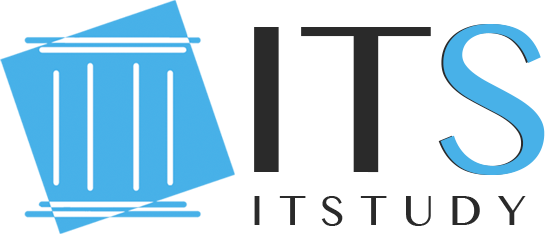
Reacti-VET: Teachers for Reactive and Responsive Vocational Education
Vocational education and training is faced daily with the need to deliver constantly renewed skills that are adapted to accelerated technological developments in order to ensure students' success in the labour market.
Today, we often encounter the concept of a skills gap, which is the mismatch between the supply of training and the needs of the labour market. Although education alone cannot solve the problem, vocational education and training can do the most to equip students with the skills the labour market needs.
This is where the Erasmus+ project Reacti-VET (Teachers for Reactive and Responsive Vocational Education), in which we are a lead partner, can help.
In most European countries, vocational education and training follows a centrally regulated curriculum that defines the content of the training. The fixed curriculum leaves teachers minimal scope to incorporate the skills that the market needs at that moment.
The development, accreditation and revision of the central framework curricula is usually a very long and complex process, which makes the system inflexible and makes it difficult for schools to respond promptly to the current needs of the labour market.
The Reacti-VET project aimed to develop a model that prepares teachers to mobilise the internal energies of the school, in collaboration with stakeholders - students, parents, teachers and, above all, employers facing a shortage of qualified staff - to identify the knowledge and skills that are lacking and to integrate them into the curricula of the graduating students.
Together with project partners, we developed a continuing education programme and e-learning materials that present a practice-oriented approach to modern technological tools for education, collaborative training and curriculum development. The training will be piloted with Estonian, Hungarian and Italian teachers and will be finalised by the consortium partners on the basis of feedback and accredited in each country according to the partners' national internal systems.
Project information
- Website: https://reactivet.itstudy.hu/
- ID: 2018-1-HU01-KA202-047816
- Program: Erasmus+ KA2
- Type: strategic partnership
- Target groups: teachers in vocational education and training
- Beneficiaries: students in vocational education and training, companies
- Partner countries (and institutions): Hungary (iTStudy Hungary Számítástechnikai Oktató- és Kutatóközpont Kft. – leading partner; SZÁMALK-Szalézi Szakgimnázium; Veszprémi Szakképzési Centrum Öveges József Szakgimnáziuma, Szakközépiskolája és Kollégiuma), Italy (Associazione Italiana per l’Informatica ed il Calcolo Automatico; Fondazione ITS per le nuove tecnologie del Made in Italy – Jobsacademy), Estonia (BCS Koolitus AS), United Kingdom (CAPDM Limited)
- Duration: 1 September 2018 – 28 February 2021

Project news
The project starts in September of 2025. We share here the results of our preliminary research in 2024 aimed to get clear evidence, that there is a strong need for guiding vocational teachers to understand the basic concepts of artificial intelligence and to equip them with the knowledge and skills to effectively integrate artificial intelligence (AI) into their teaching.
As part of the proposal development process, the project partnership conducted an online survey to assess vocational teachers' readiness, attitudes, and needs related to the integration of Artificial Intelligence (AI) in education.
Survey period: 17–23 July 2024 Platform: EU Survey portal Sample size: 269 valid responses Countries represented: Hungary (29.89%), Italy (35.06%), Spain (21.77%), Lithuania (12.18%) Gender distribution: 56.83% female, 42.44% male Educational background: 68.27% held a master’s degree (MSc), but only 9.96% had vocational qualifications Teaching experience: 73% had over 11 years of experience |
The primary objective of the survey was to validate the following preliminary assumptions:
Vocational teachers often face uncertainty and hold misconceptions about AI.
Teachers acknowledge the increasing importance of AI in the labor market and recognize the need to adapt accordingly.
Although students are already engaging with AI technologies, many teachers feel unprepared to incorporate them into their teaching practices.
Educators show a willingness to adopt AI in the classroom but require targeted professional development to do so effectively.

MAIN CONCLUSIONS
Teachers expressed both optimism and caution regarding AI’s role in education. While 43% agreed that AI is essential for the labor market, over 50% believed that most teachers are not yet prepared to integrate AI into their classrooms. Furthermore, teachers stressed that effective AI integration requires managerial support and teacher collaboration.
The survey results clearly justify the relevance of the project’s aims, confirming that vocational teachers need targeted support to understand and apply AI in their teaching and that there is strong interest in student-centered, AI-integrated methodologies aligned with labor market demands.
More details in the document: Secondary School Teachers' Attitudes Toward AI Integration in Teaching - Survey across four European countries.
Information: maria.hartyanyi@itstudy.hu
